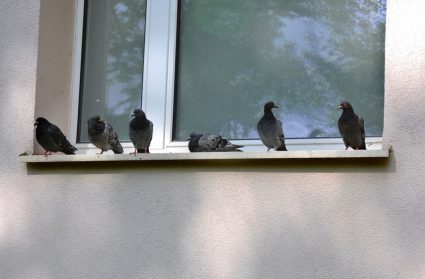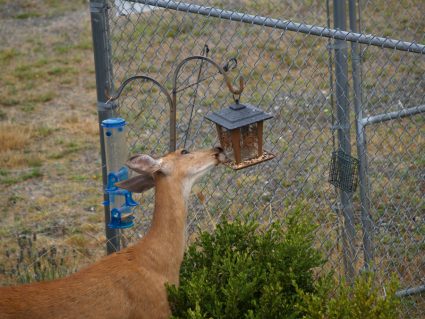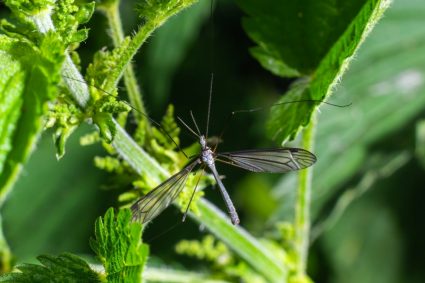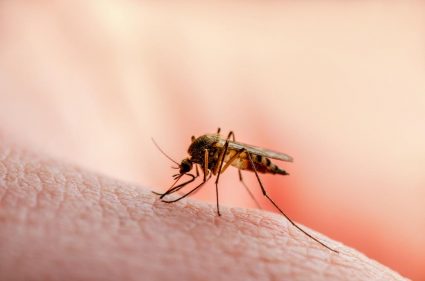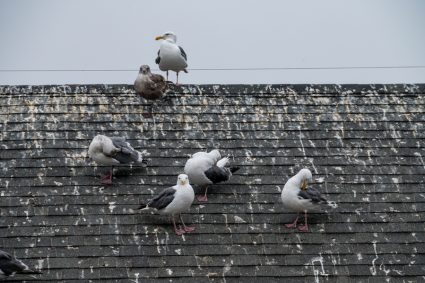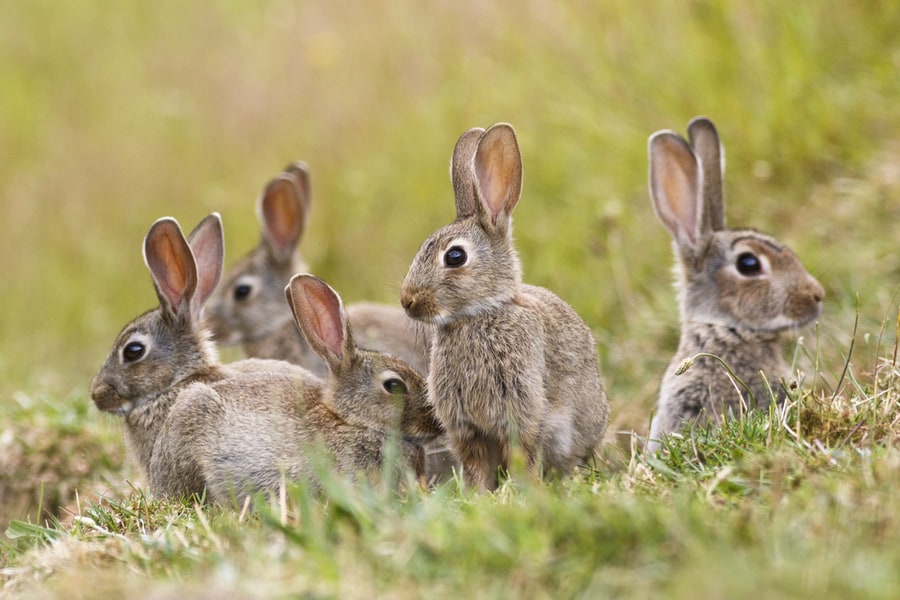
At first sight, rabbits, squirrels, and other garden pests may seem adorable. But if you allow them free access to your property, you will soon discover that they can rip your garden apart.
Fortunately, several plants can help keep them at bay. We will identify some in this guide.
Rabbits and squirrels are two animals that can be extremely destructive when they invade a garden. Growing some of the plants below can help keep them at bay.
- Daffodils
- Lily of the valley
- Common snowdrop
Here are three options. Read the guide to learn more!
We will identify 10 plants that deter rabbits and squirrels in the following headings. Growing some of these plants can help you keep rabbits and squirrels at bay from your garden.
10 Plants That Deter Rabbits and Squirrels
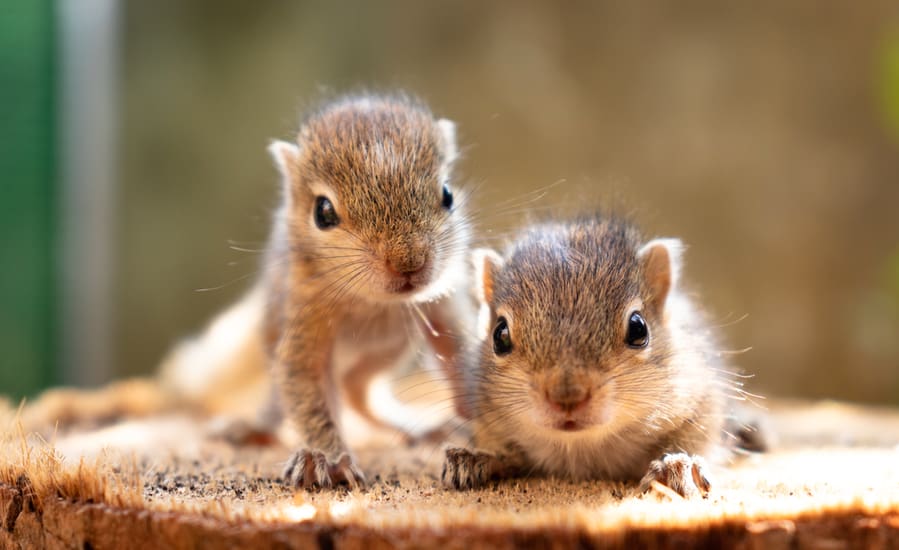
Squirrels are hoarders and steal food from accessible gardens for their winter stash. Unlike other animals, they do not hibernate during winter and need food to sustain them.
Fortunately, you can use their love for food as a tool to keep these pesticide critters away for good.
Like humans, rabbits and squirrels have plants that they love and those that turn them off.
Let’s look at some plants that can help keep these furry animals off your garden.
1. Alliums
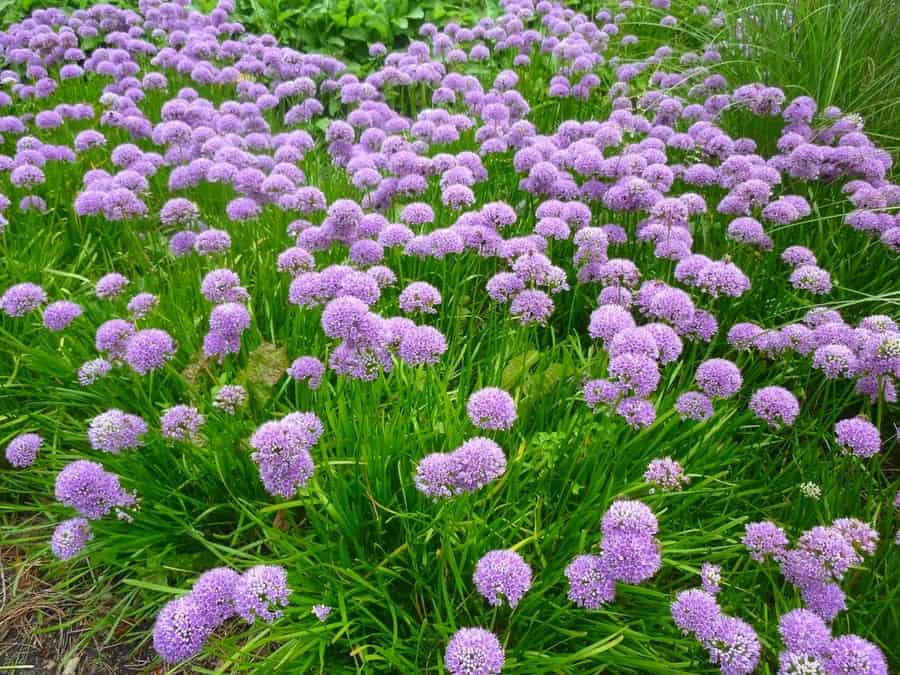
Alliums are popular across many food cultures because of their many culinary benefits.
You can probably know some plants in this category, but under different names, with onions and garlic being the most famous.
These plants have unmistakable strong scents that give food extra flavorings. Even animals can identify this powerful scent and often stay away from them.
As root crops, any allium plant can fit right into your garden, blending easily with the vegetables.
You can place them strategically around carrots and tomatoes, some of the juicy vegetables that these furry animals love.
The presence of allium crops will reduce foraging in your garden and uproot your crops with their bulbs.
Even the thinnest wind can blow a whiff of these strong-smelling alliums across your garden.
2. Daffodils

These flowers are famous for their bright colors, but animals recognize them for different reasons.
They are the perfect pest repellents because of their unpleasant taste and strong aroma.
When planted among other crops, daffodils can disguise their scent, setting pests like squirrels and rabbits from foraging there.
The best part is that these plants can easily grow and survive in almost any climate.
However, daffodil does not bloom all season, as they tend to lie dormant in the summertime. You can only get the most bloom out of them from winter until spring.
But this is not to say that daffodils are not effective. Even in their dormant state, the scent of daffodils is still powerful enough to keep critters away.
3. Hyacinths
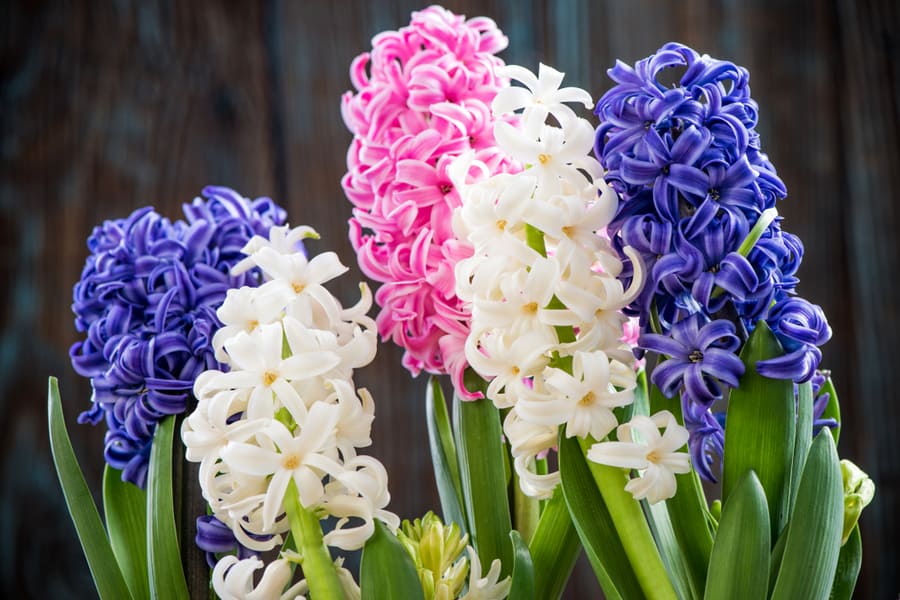
Hyacinth is known for its unique fragrance and alkaloid content.
While bees find this fragrance attractive, the opposite is true for critters like squirrels and rabbits.
Its toxic alkaloids gather in the bulbs, which are unsafe for consumption, but pests don’t know the difference.
Remember that these pests love to dig crops with their claws before munching the delicious food.
If they are unfortunate to target hyacinths, the unpleasant experience will turn them away from your garden.
You can plant hyacinth bulbs around your precious food crops for a formidable pest control strategy. Or create a special bed of hyacinth plants before your garden.
These problematic pests will then be forced to face these unpleasant plants before reaching our garden.
4. Lily of the Valley
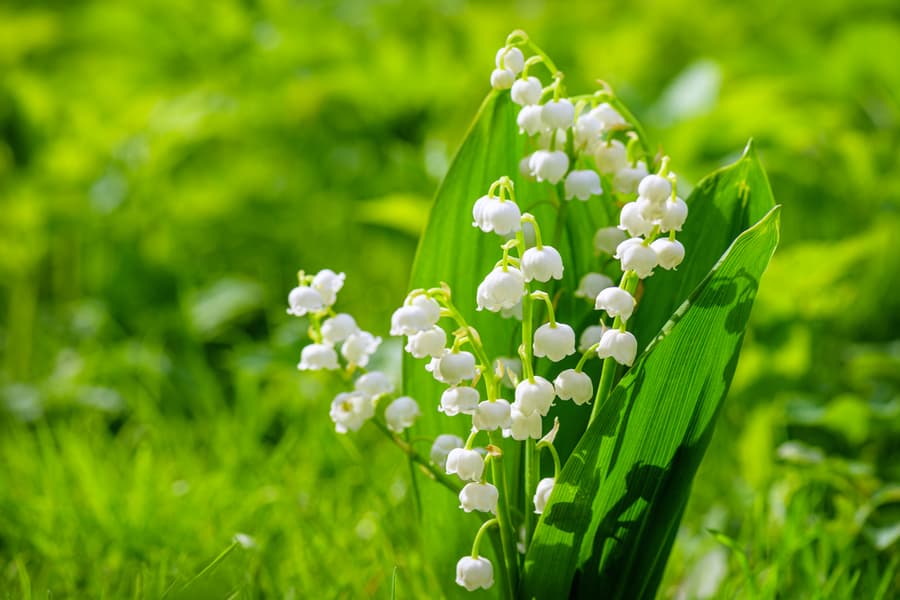
Don’t let cute fragile, sweet-smelling bell-shaped flowers from the Lily of the Valley plant fool you. This plant contains some toxic chemicals called cardenolides that affect humans and animals alike.
This chemical runs through the different parts of the plant, including its stems and red seeds. Nibbling on any of these parts can cause abnormal problems and affect the heartbeats.
Thus, any garden pests that dig up these plants for consumption place themselves in danger.
However, these plants should be grown cautiously because of their aggressive properties. Lily of the Valley plants are invasive and tend to outgrow their boundaries.
So, you may want to keep your eyes on them.
5. Common Snowdrop
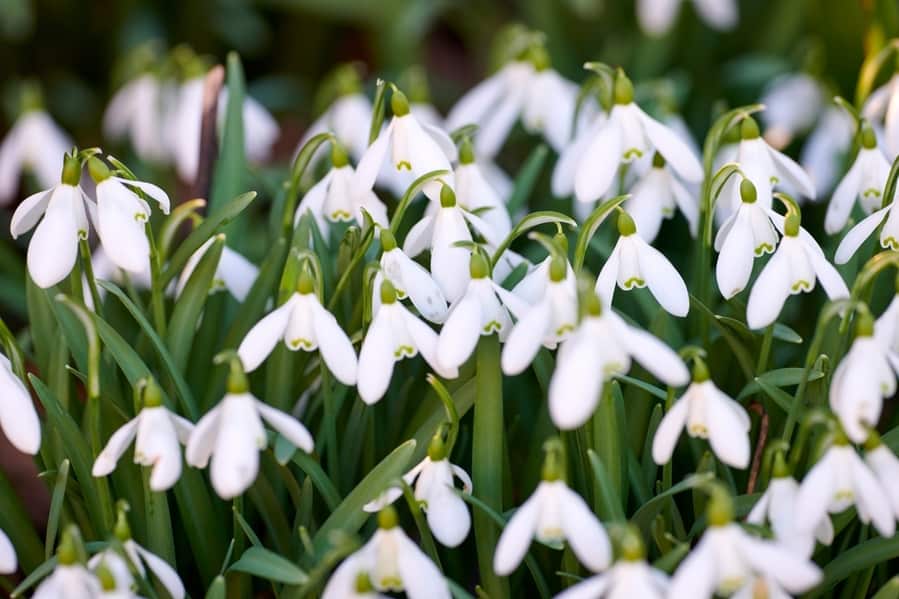
Although the common snowdrop has innocent-look white flowers, it has a poisonous bulb that rabbits won’t touch.
This plant gets its unique name from the striking resemblance between its dropping flowers and snowdrops.
It is a low-maintenance plant that multiplies quickly and is resistant to many garden pests, including rabbits and squirrels.
There is a concentration of toxic substances in its bulb, which most pests are drawn to. However, the leaves and stems of this plant are not left out, as they are equally poisonous.
Common symptoms of poisoning include nausea, seizures, and abnormal troubles. So, keeping your pets far from this seemingly fragile flower is best to prevent an incident.
6. Geraniums
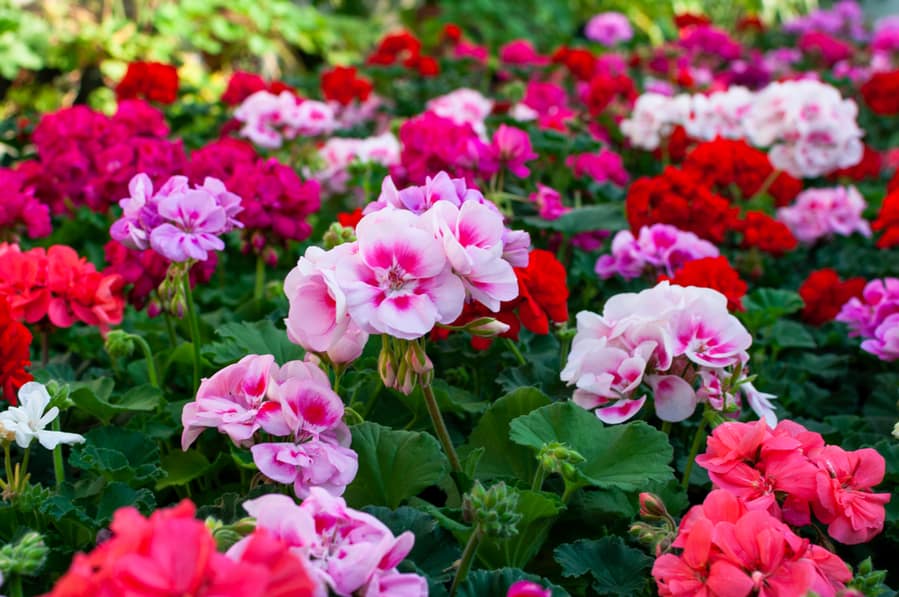
Geraniums are colorful flowering plants that repel most pests, including squirrels and rabbits.
However, it is not these brightly colored, veiled flowers but their strong scent that deters pests. Geraniums have a natural citrus scent that can easily overwhelm an area.
It is the primary ingredient in many beauty products like body washes and perfumes.
To create a pest barrier, you can grow these flowers as a perimeter or mix them up with your plants.
7. Fritillaria meleagris (Snacks Head Fritillaria)
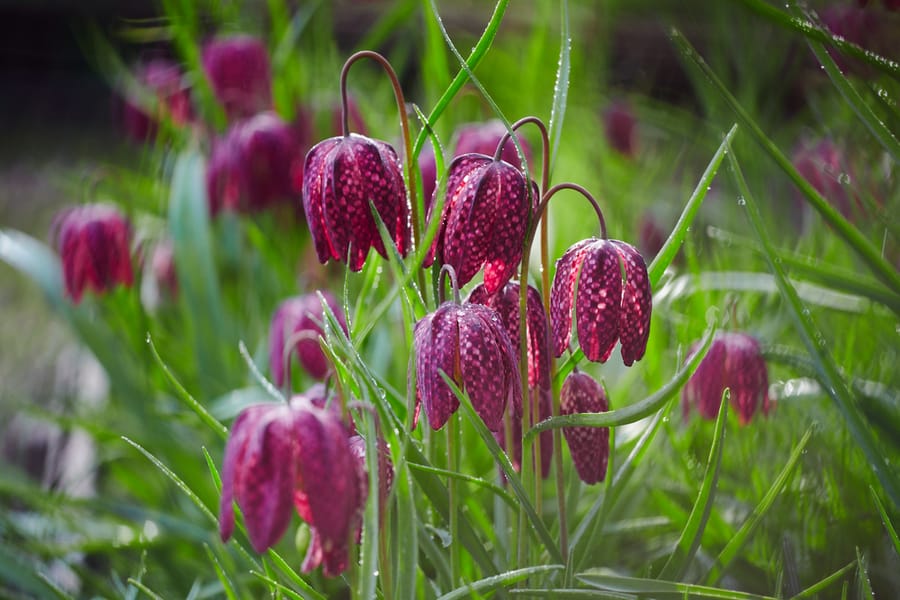
Both its English and botanical names are a mouthful, but fortunately, this plant goes by other shorter names. These include a frog cup, Lazarus bell, a leper lily, chequered Lily, and more.
Its flower petals are chequered and shaped like a snake head, from which it gets its unique name. The drooping shape of this flower can easily scare an observer from afar.
However, it is not the intimidating petals that scare squirrels and rabbits but the strong odor that follows them. As though that is not enough, this plant also has a toxic property like Tulipalin A., which produces severe reactions.
Direct contact can cause skin inflammation. Then, ingesting this plant can lead to intestinal problems and, in some cases, a heart attack. Now, imagine the impact on smaller animals like squirrels and rabbits.
Growing these flowers in your garden is safe, provided you understand their toxic features. With that in mind, grow them in an area where your pets cannot reach them.
Better still, find the entry spots of this wide pest and grow these flowers across them. Ensure that the soil in that area has sufficient moisture to help this plant grow properly.
8. Marigolds
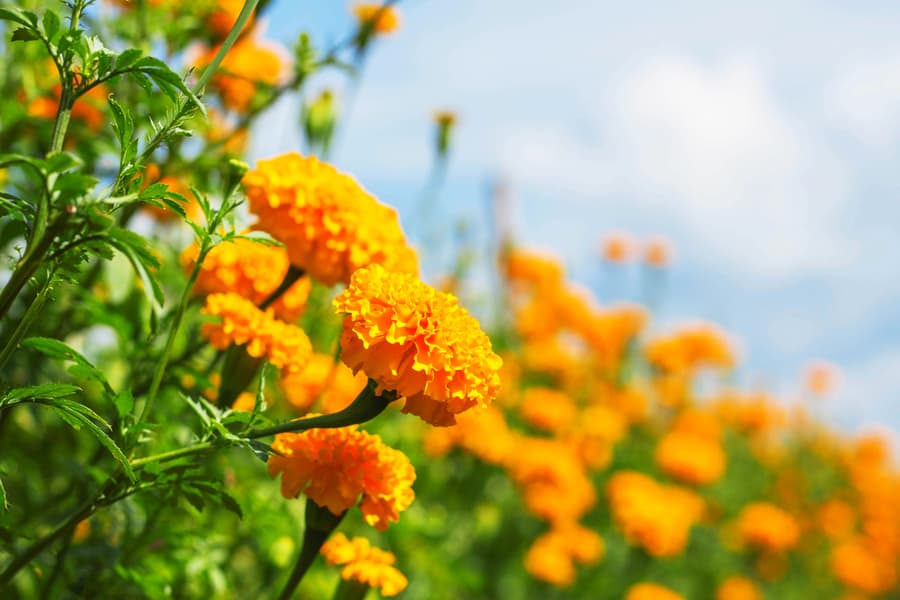
These flowers are popular for many decorative reasons. For one, its bright yellow petals make an excellent addition to commercial bouquets.
Then, they have a powerful sweet-smelling fragrance that uplifts a home’s natural ambiance. It is not surprising to see beautiful garlands of marigolds adding color to festivity in many south American cultures.
Its roots contain thiophenes, a sulphuric substance that has antibacterial properties. This chemical is what aid the plant in repelling pests.
But, for critters like squirrels, the fragrance alone is enough to do the pest-deterring job. On the flip side, rabbits tend to steer clear of this plant because of its bitter taste.
So, either way, you have these furry pests running out of your garden at the sight of marigolds’ bright bloom. However, ensure you grow these flowers in good soil and in the direction of sunlight.
Most marigolds species have an annual lifespan and die soon after their flowers wither. But they can revive themselves, and the seed will germinate again in the next season.
This is as long as the soil and environmental conditions remain constant. So, water and fertilize your garden frequently to encourage a fresh bloom.
9. Lantana
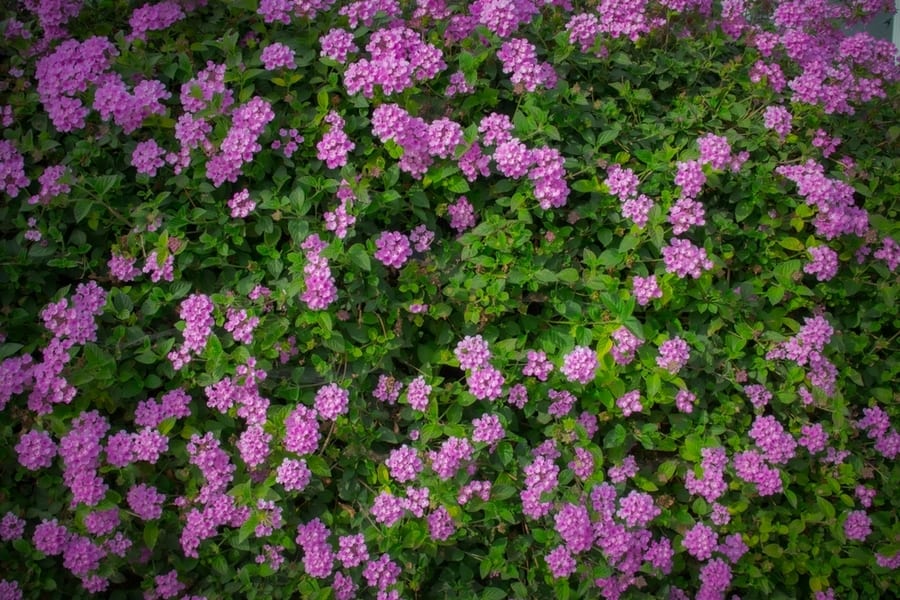
Lantana is a popular pest repellent, deterring small animals like rabbits and big pests like deer. The tropical flowering plant has a strong, offensive aroma that most rabbits prefer to avoid.
Its berries can also poison any animal that consumes them. The foliage is not spread from the deadly combo, as animals eating them may experience severe toxic reactions.
Thus, keeping your pet away from the garden is best if you have growing lantana bushes. It takes only a small amount of lantana to evoke toxic reactions in smaller animals like rabbits and household cats.
Still, on the matter of bushes, now may be the right time to state that lantana bushes grow wide. Although easy to cultivate and drought-resistant, lantana flower bushes easily spread and become dense as they grow.
As they grow, they can stifle the growth of other plants in your garden. So, keep an eye on these flowers and prune them often for a healthy bloom.
10. Lavender
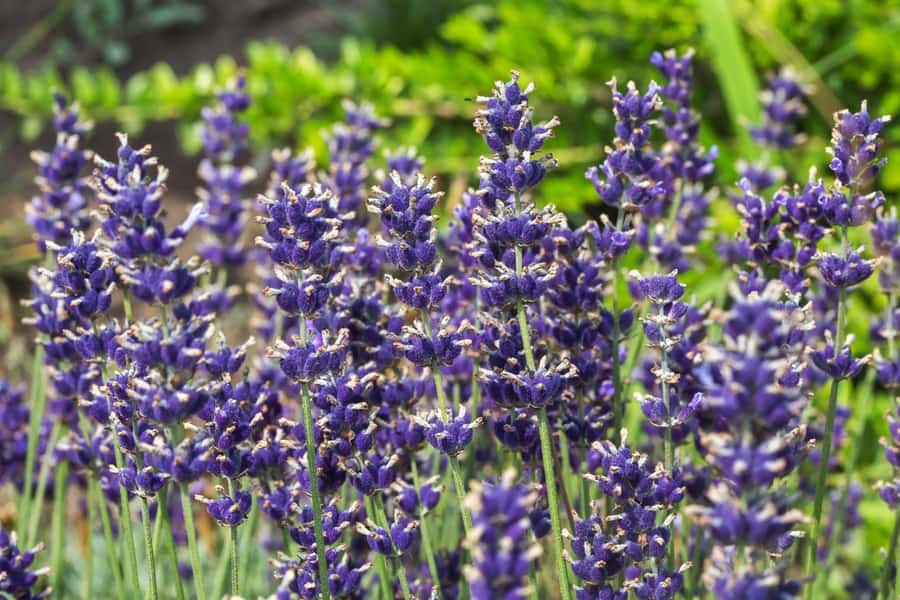
To humans, lavender has a pleasant smell, easily making it a common home fragrance.
But to animals like rabbits, the smell is plain disgusting. Rabbits will do anything to avoid a pitch of growing lavender, even if it means never entering your garden again.
Although the plant has no toxic properties and is safe for consumption, rabbits prefer to avoid it. So, you can grow small lavender shrubs along your garden parameters to deter pests from entering.
Different lavender species have dwarf and giant properties, so pick which size matches your property landscape.
Then, note that this plant performs better in neutral or alkaline soils. As a preserving plant, lavender can survive through harsh winters and extremely dry summers.
Conclusion
You see rabbits and squirrels playing in your garden and find them interesting.
But these cute animals are opportunists and will not think twice about eating your food crops.
If you notice the sudden shriveling of garden plants, these critters may be to blame.
Growing some of the recommended plants can help deter them from your garden.
Frequently Asked Questions
Can Dogs Deter Rabbits and Squirrels?
Dogs love to run around, and you will likely find them chasing squirrels and rabbits in your garden.
Some gardeners even use dog hair and urine as natural garden pest deterrents.
How Does Pepper Repel Furry Pests?
Most peppers like cayenne and chili are too hot for some animal palate.
Thus, sprinkling cayenne pepper or a pepper spray solution can help keep furry pests out of your garden.

